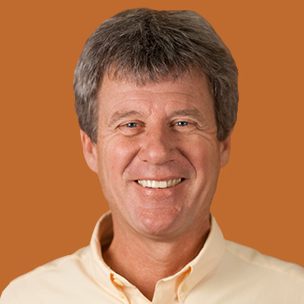Dr. Sai Yendamuri
- Thoracic Surgeon
- Pleural Specialist
- Expertise:
-
Extrapleural Pneumonectomy
Research - Speciality:
-
Thoracic Surgery
- Gender:
-
Male
- Language:
-
English, Hindi, Telugu
- Doctors At This Location
-
Dr. Todd DemmyProfessor of Oncology at the Roswell Park Comprehensive Cancer CenterDr. John M. Kane IIISurgical Oncologist
- Expertise:
-
Extrapleural Pneumonectomy
Research - Speciality:
-
Thoracic Surgery
- Gender:
-
Male
- Language:
-
English, Hindi, Telugu
Primary Location
Roswell Park Comprehensive Cancer Center120 Carlton St, Buffalo, NY 14203, USA
DirectionsIf anything, there will be more.
Yendamuri is a thoracic surgeon at Roswell, where he also serves as director of the facility’s thoracic laboratory. He expects that educational efforts will lead to earlier detection and improved success rates with mesothelioma.
“Over the next few years, we will see dramatic improvement of mesothelioma care. There are better chemotherapy agents. Radiation therapy is getting more precise. Personalized care at the genetic level will happen,” he said during the center’s weekly Roswellness Radio program.
But he also emphasized that mesothelioma isn’t going away anytime soon.
“Ultimately I expect that the incidence will decrease because of the caution we’re exercising now with asbestos. But because of the latency period [the decades-long gap between first exposure and diagnosis], for that effect to show it’s going to take several more decades,” Yendamuri said.
Each year, 2,000 to 3,000 cases of mesothelioma are diagnosed in the U.S.
Focus on Mesothelioma
Yendamuri is one of many mesothelioma oncologists who believe there is a clear and direct genetic link for those who develop the cancer.
Yendamuri encourages patients and primary care physicians to take a more active role in looking for mesothelioma, which often is not diagnosed until it has reached a stage where the prognosis is grim.
“It is very commonly overlooked. And many physicians don’t ever see it, so it’s not high up there on things to look for,” he said. “If there is an older person who has been exposed to asbestos for a prolonged period of time and now develops shortness of breath and fluid in the chest, that’s the kind of patient who could have mesothelioma.”
Not everyone exposed to asbestos will get mesothelioma. It’s only a few who are genetically susceptible. We’ve grown to realize that most forms of cancer are a combination of genetic predisposition and environmental exposure. There is nothing about mesothelioma that suggests it’s anything else. It may not be as well defined now as in other cancers, but that’s probably just a question of time.Dr. Yendamuri
Yendamuri’s research interests include molecular staging of thoracic malignancies, lung cancer screening and risk prediction using genomic markers.
He received his degree from All India Institute of Medical Sciences in New Delhi, India. He completed his residencies at MD Anderson Cancer Center in Houston and the New York Hospital Medical Center of Queens/Cornell University.
A team at Roswell, including Yendamuri, published an article titled, “Thoracoscopic Extrapleural Pneumonectomy for Mesothelioma,” in the Annals of Thoracic Surgery in 2010.





